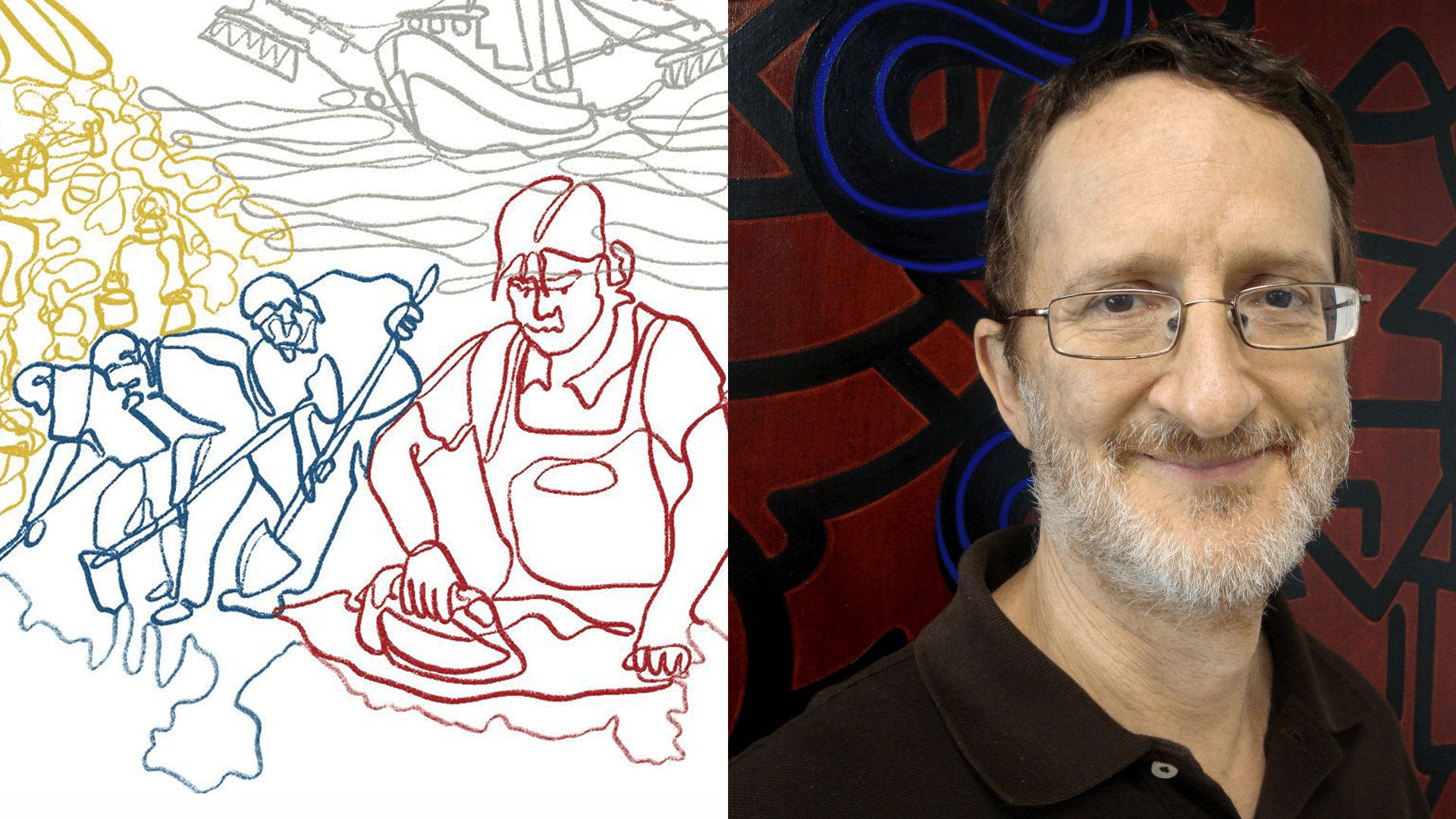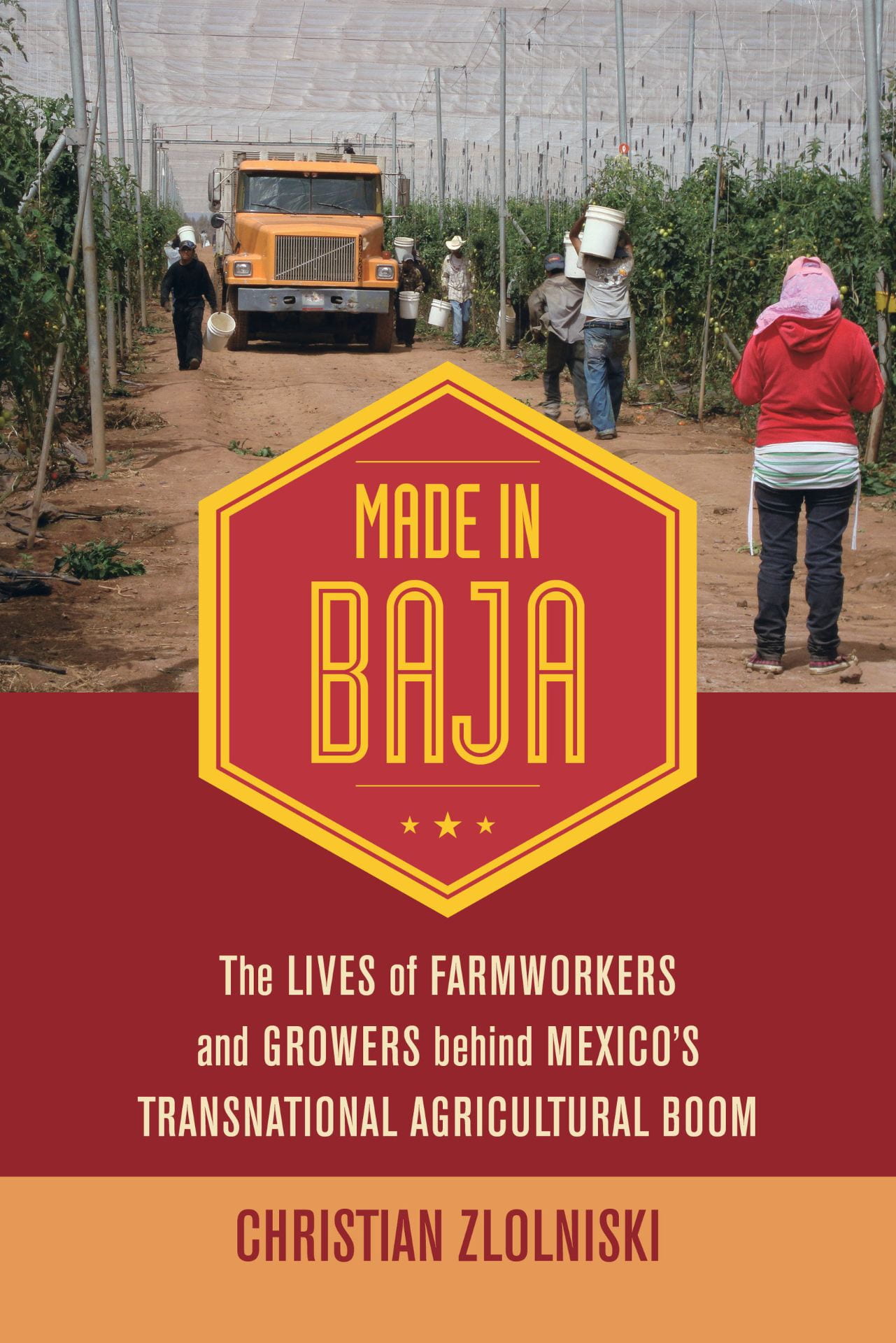
In preparation for the upcoming symposium, Chasing Slavery: The Persistence of Forced Labor in the Southwest, to be held at Texas State University from 24-26 October, in Flowers Hall 230, we will be running a series of posts focused on the conference participants and organizers. The conference will bring together dozens of scholars, with a keynote from Ambassador Luis C.deBaca (ret.). See the conference website for more details.
Today, conference participant Dr. Christian Zlolninski, Associate Professor, Sociology and Anthropology at the University of Texas at Arlington, shares with us a bit about his research.

Tell me in four sentences why I should read your book.
Dr. Christian Zlolniski:
- To learn about where much of our the fresh tomatoes, strawberries, and other fresh-produce are grown, you consume come from, especially during the winter.
- To find out how people in living in northern Mexico have been affected — positively or negatively — by the production of fresh-produce for consumers markets in the United States, including positive and negative results.
- To learn about the environmental effects caused by growing water-intense fresh crops in arid Baja California.
- Read from farmworkers’ own voices what they say about the opportunities and costs that export agriculture has brought to their lives and their families.
What was the most surprising thing you encountered when researching your book?
Dr. Zlolniski: The social lives of farmworkers beyond the workplace.
Indigenous workers not only grow the fresh produce we eat, but they also play a key role in settling and developing the arid lands of the San Quintin Valley that until was regarded as recently were seen as inhospitable and impossible to make a living. In the process, farmworkers have also developed a sense of belonging and community, adopting this land as their own with pride. Reducing them to the one unidimensional category of farmworkers prevents us from doing justice to the multiple ways in which they have enriched the region culturally, socially, and politically.
What do you hope people will take away from our conference on trafficking, forced labor and labor exploitation?
Dr. Zlolniski: To see the connections, continuities and discontinuities between different labor regimes across time and space. Capitalist agriculture keeps reinventing old labor configurations while creating new ones with the introduction of new production technologies. My critical and historically informed analysis allows us to understand how forms of labor exploitation change and evolve over time, often sparking novel forms of labor resistance and class struggle.
What challenge(s) raised by your research are you still trying to reconcile?
Dr. Zlolniski: Combining my scholarly work with a more public approach that disseminate its findings beyond the walls of academia. As an anthropologists whose research and scholarship depends on the collaboration with the peoples and workers I study, I realize that we need to reciprocate and make our studies meaningful to a larger audience to bring change. This means balancing our intellectual labor with the moral imperative to make our research relevant to the people who contributed to our studies and academic careers. It also means to use our voice to shape public policies to improve the conditions of the people we study as they themselves define them.
Also check out:
- Made in Baja The Lives of Farmworkers and Growers behind Mexico’s Transnational Agricultural Boom
By Christian Zlolniski (University of California Press, 2019)
